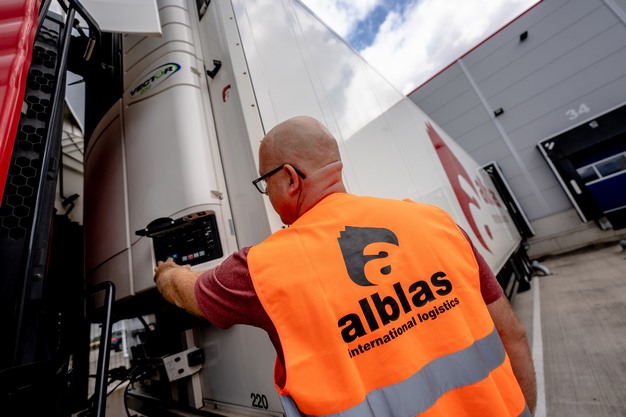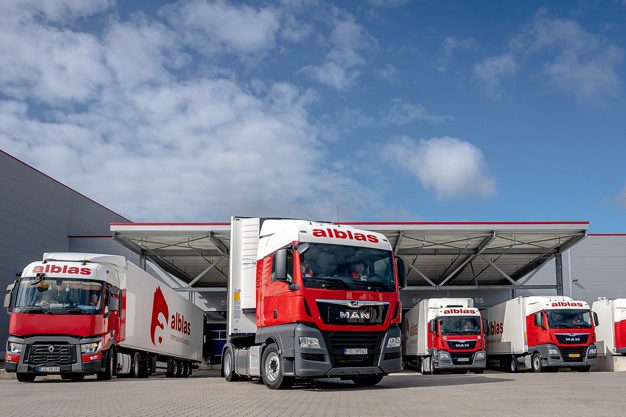These days, work, impact, and result accountability are standard in almost every profession. With the focus on climate change, we as a society also want to collect CO2 emission data. Quirijn Alblas of Alblas International Logistics explains how they go about doing so.

CSRD reporting is a European Union initiative to monitor companies' CO2 emissions. From 2025, it will become mandatory for companies with 250+ employees, an annual turnover of over €50 million, or a balance sheet total of more than €25 million. This disclosure, which must be audited like an annual financial report, includes emissions related to goods and services the businesses purchase from suppliers. Large companies, therefore, expect transport companies to be able to specify CO2 emissions per shipment or item.
Clarity at a glance
"Clients using our logistics activities get a comprehensive CO2 emission overview of their transport order," says Quirijn, project manager at Alblas International Logistics. "We will offer that in a report and via an EDI connection, so they can include the data directly in their CSRD summary. To get an accurate picture, we use real information, not standard models, to calculate CO2 emissions."
"We present emissions for partial shipments, too, assigned according to ISO-14083. We can reduce per-product unit emissions through proper planning and maximum vehicle loading. After all, mandatory reporting aims to minimize emissions. In the future, customers will probably put even more pressure on CO2 emission reduction than the government," explains Quirijn.
Electric, non-grey energy
Besides a well-planned driving schedule, Alblas sees several more ways to limit the transport sector's ecological footprint. "Training drivers to reduce diesel consumption is effective. Alternative fuels such as LNG, hydrogen, and electricity also offer solutions, but electric vehicles must run on green electricity to make any environmental gains. The biggest challenge, though, isn't electric trucks' performance or availability; it's the charging infrastructure."

Alblas offers sustainable transport options like using HVO100 fuel and closely follows developments on the sustainability front. "Our CO2 and sustainability report is audited annually. New clients are often pleasantly surprised that they can gain insight into a shipment's full emissions. Our simple reporting is very useful further along in the information chain," Quirijn concludes.
Alblas International Logistics, a family business, was founded in the Netherlands in 1896. It specializes in transporting part loads and temperature-controlled goods such as fruit and vegetables globally. They also offer logistics services like warehousing, cross-docking, customs activities, and VAL solutions.

The company employs 350 people, has 250 trucks and 400 trailers, and has branches in the Netherlands, Germany, Poland, Romania, and China. The Chinese branch focuses on road transport from Asia to Europe, particularly for goods that cannot be transported by air. The Fresh division in Europe is the most lucrative, transporting mainly fresh produce, a sector Alblas plans to expand further.
For more information:
Quirijn Alblas Alblas International Logistics
Alblas International Logistics
86 Mijlweg
3295 KH, 's-Gravendeel, The Netherlands
Tel: +31 (0)786 738 733
Email: quirijn.alblas@alblas.nl
www.alblas.nl
